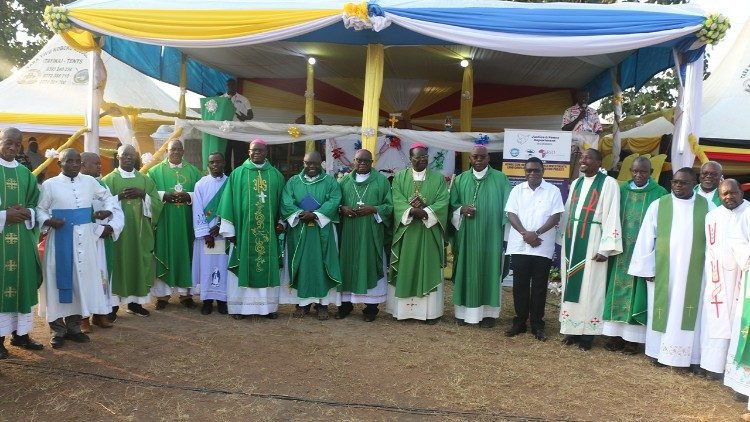In a pastoral letter titled “The Truth Will Set You Free,” Uganda’s Catholic Bishops issue a warning about the country’s current socio-political direction, calling for urgent reforms to prevent national collapse. Their message comes amid growing concern over violence ahead of the 2026 elections.
By Linda Bordoni
Uganda’s Catholic Bishops have issued an appeal to the nation to confront growing political and social instability, warning that the country is “on the edge” and urging a return to values of justice, dialogue, and moral integrity.
In a 15-page pastoral letter titled “The Truth Will Set You Free”—released ahead of Uganda Martyrs Day on June 3—the Bishops express deep concern about what they describe as “the painful realities of our time,” including rising torture, corruption, abuse of power, and increasing inequality.
“The nation is on the edge. A change of direction is urgently needed,” said Bishop Joseph Antony Zziwa, Chairperson of the Uganda Episcopal Conference. “We are at a critical moment in our country’s history. If we do not act now, we risk plunging back into the kind of turmoil we hoped was behind us.”
The letter identifies various threats to national stability, including tribalism, widening poverty, youth unemployment, and a lack of transparency and accountability in public institutions. It urges political leaders to resist the temptation to seek power at all costs and instead focus on serving the common good.
“Injustice anywhere is a threat to justice everywhere,” the Bishops write, invoking the words of Martin Luther King Jr. “The misuse of power, the silence of the Church, and the complacency of citizens all contribute to the deterioration of our moral and social fabric.”
Condemnation of violence and torture
The letter also raises alarm over increasing acts of violence and torture, particularly in the context of political competition ahead of the 2026 general elections. Archbishop Paul Ssemogerere of Kampala condemned what he described as the “brutality and mudslinging” already emerging in the political arena.
Speaking at the 28th anniversary of Kasana-Luweero Diocese, he noted, “What happened recently in Kawempe North during the nominations is not just a political mishap—it’s a warning sign. We cannot afford to turn a blind eye to torture, intimidation, and abuse.”
The Archbishop also reminded leaders and citizens alike of Uganda’s troubled past, particularly the suffering in regions like Greater Luweero, calling on residents to reject political violence in all its forms. “Let us not forget the blood that was shed in this land. Violence must not be allowed to take root again.”
A call to journalists and legislators
In a direct appeal to the media, the Bishops urged journalists to promote messages of peace and accountability. Archbishop Ssemogerere stressed the importance of the press in shaping public discourse: “Media should not be used to inflame tensions, but to foster understanding and responsible civic engagement.”
The Church also called on Parliament to legislate justly, specifically addressing concerns about civilians being tried in military courts. “Let us pray that our legislators enact laws that promote the common good, justice, and freedom for all,” said Archbishop Ssemogerere.
Church’s role and moral responsibility
Bishop Zziwa emphasized that the Church, while non-partisan, cannot be silent in the face of injustice. “It is part of the Church’s mission to pass moral judgment in all spheres of human life,” he said, citing Pope Francis’ call for a “politics that seeks the common good.”
Drawing inspiration from the Gospel of John, the letter insists: “The truth will set you free.” The Bishops call on all Ugandans—regardless of political affiliation—to embrace truth, integrity, and national dialogue.
“We must avoid the politics of fear and manipulation,” the letter concludes. “Uganda belongs to all of us. The future of this nation depends on the choices we make today.”



